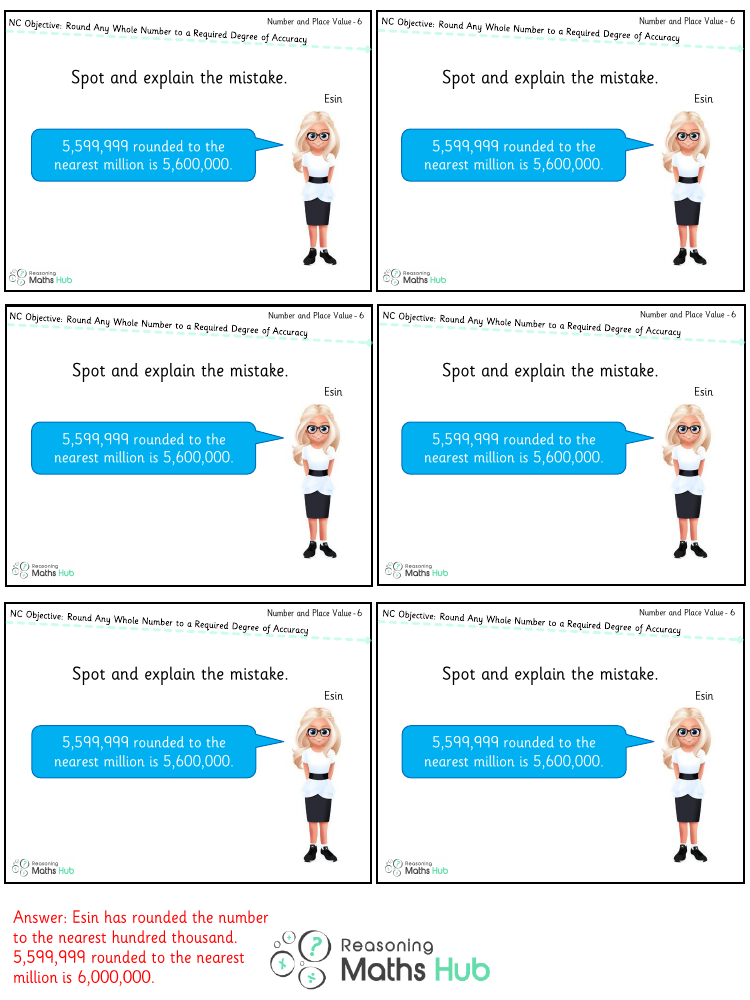Round any whole number to a required degree of accuracy - Reasoning

Maths Resource Description
Teaching students to round whole numbers to a required degree of accuracy is an essential skill in mathematics, fostering numerical reasoning and precision. The process involves identifying the place value to which the number needs to be rounded and then adjusting the number accordingly. For instance, if rounding to the nearest ten, one must look at the units digit to determine whether the number will round up or down. If the digit is five or above, the number rounds up; if it's four or below, it rounds down. This concept is vital for estimating, simplifying figures, and making numbers more understandable in various contexts such as financial calculations, measurements, and data analysis.
Differentiated activities can help students practice and master this skill. Reasoning problems may ask students to justify their rounding decisions or to compare rounded numbers to determine accuracy. For example, a question might present a number and ask to which value it would round to the nearest hundred, and why. Students must then explain their reasoning, showing an understanding of the rounding rules. These exercises not only enhance their mathematical thinking but also prepare them for real-life scenarios where estimating and rounding are frequently used to make quick and efficient decisions.
